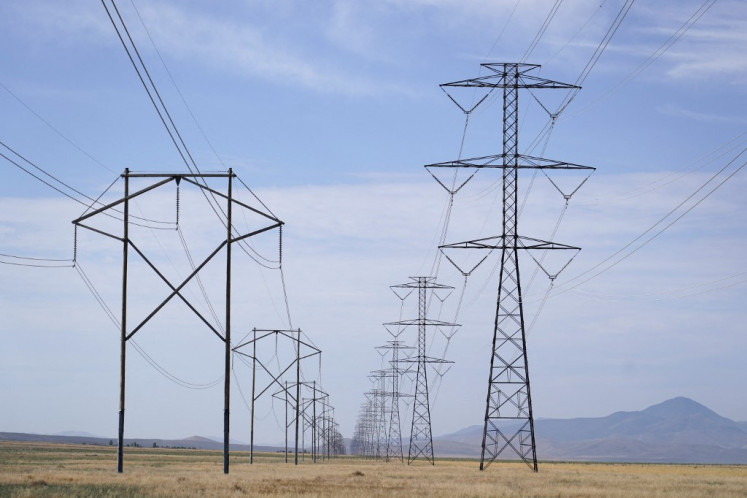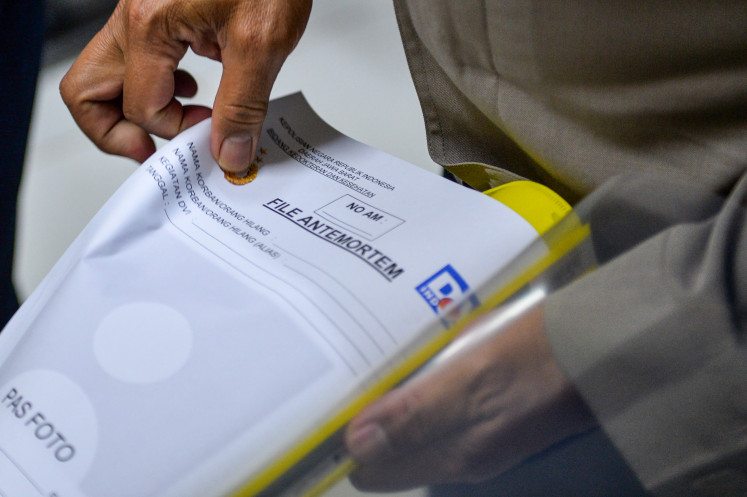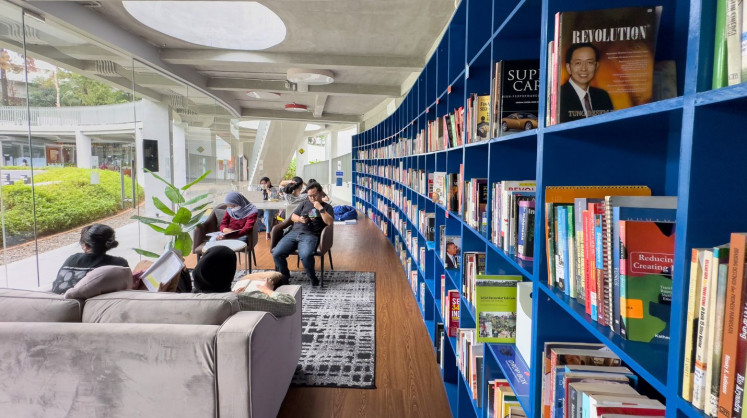Mining firms want leeway amid bauxite export ban
Domestic smelting capacity insufficient to process output.
Change text size
Gift Premium Articles
to Anyone

The government is adamant about its plan to ban bauxite exports on Saturday so as to boost domestic processing and refining.
"It is still on. The policy has been in place for a long time, and the President said that [the ban] should be [implemented] on June 10," Muhammad Wafid, interim director general of minerals and coal at the Energy and Mineral Resources Ministry, said on Thursday.
He referred to the 2023 Mineral and Coal Mining Law, which allows miners to export "certain unrefined mineral products" only until June 9, 2023. The plan was reaffirmed by President Joko "Jokowi" Widodo in a statement last December.
The decision has prompted criticism from domestic players, who say there is not enough domestic bauxite processing capacity to absorb all the ore produced in the country.
A. Rizqi Darsono, head of the Indonesian Chamber of Commerce and Industry’s (Kadin) permanent committee on minerals and coal, explained that local refiners could only process 14 million tonnes of bauxite into alumina a year with the current refinery capacity of four smelters.
That is far below the national bauxite output, which amounted to more than 27 million tonnes last year.
"In general, Kadin has a position as a strategic partner of the government, so we support the regulation that has the objective of increasing investment in the country. However, on some occasions, we also try to provide input," Rizqi told The Jakarta Post on Friday.
Read also: We won't make it: Industries cast doubt on bauxite-export ban in mid-2023
Bauxite and Iron Ore Companies Association (APB3I) interim head Ronald Sulistyanto said the ban might push mining companies to cut production and lay off thousands of workers.
"The layoffs will also affect those employees' families. If an employee has three [dependents], the impact of [this regulation] will be tripled," Ronald said on Wednesday, as quoted by CNBC Indonesia.
When asked about the issue of domestic ore absorption, Muhammad Wafid said the government would evaluate the impact once the regulation was implemented.
Calls for leniency
The same regulation also bans copper concentrate exports. However, the government decided in April to grant two major copper miners, PT Freeport Indonesia and PT Amman Mineral, leeway to continue exporting copper concentrate until May next year.
In a statement, Energy and Mineral Resources Minister Arifin Tasrif pointed to significant progress in smelter construction by those companies as justification for the leniency.
Read also: Indonesia to allow Freeport, Amman Mineral to ship copper concentrate until 2024
Kadin's Rizqi said the same rationale could also be applied to bauxite-mining firms that had embarked on smelter construction and been inspected by government-appointed surveyors.
"We hope the government can give a year’s extension, similar to copper miners. Or maybe put in place an arrangement such as a penalty or gradual export ban for companies failing to build smelters according to plan," Rizqi said.
Rizqi said Kadin looked forward to further communication between the industry and the government as soon as possible.
"The government imposed a similar ban for bauxite [in 2014] but then lifted the moratorium again. So, tomorrow is not doomsday," Rizqi stated.









